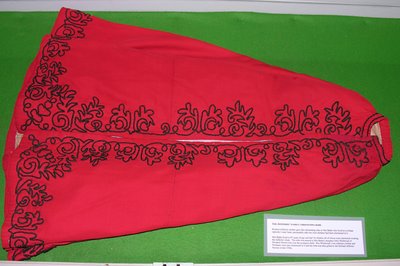MAY NATURE NOTES
This month's extract is taken from the HOURS OF SPRING. It was first published in May 1886 in Longman’s Magazine and later in the Field and Hedgerow collection. By this time Richard Jefferies (1848-1887) was crippled with tuberculosis - the year before his death - and was no longer able to walk outside and chronicle the comings and goings of creatures and plants. Jefferies continues to marvel at nature and in this extract it is bird song that he found so sweet.
It is sweet on awaking in the early morn to listen to the small bird singing on the tree. No sound of voice or flute is like the bird's song; there is something in it distinct and separate from all other notes. ..The bird upon the tree utters the meaning of the wind--a voice of the grass and wild flower, words of the green leaf; they speak through that slender tone. Sweetness of dew and rifts of sunshine, the dark hawthorn touched with breadths of open bud, the odour of the air, the colour of the daffodil--all that is delicious and beloved of spring-time are expressed in his song. Genius is nature, and his lay, like the sap in the bough from which he sings, rises without thought. Nor is it necessary that it should be a song; a few short notes in the sharp spring morning are sufficient to stir the heart. But yesterday the least of them all came to a bough by my window, and in his call I heard the sweet-briar wind rushing over the young grass. Refulgent fall the golden rays of the sun; a minute only, the clouds cover him and the hedge is dark. The bloom of the gorse is shut like a book; but it is there--a few hours of warmth and the covers will fall open. The meadow is bare, but in a little while the heart-shaped celandine leaves will come in their accustomed place. On the pollard willows the long wands are yellow-ruddy in the passing gleam of sunshine, the first colour of spring appears in their bark. The delicious wind rushes among them and they bow and rise; it touches the top of the dark pine that looks in the sun the same now as in summer; it lifts and swings the arching trail of bramble; it dries and crumbles the earth in its fingers; the hedge-sparrow's feathers are fluttered as he sings on the bush.
The green hawthorn buds prophesy on the hedge; the reed pushes up in the moist earth like a spear thrust through a shield; the eggs of the starling are laid in the knot-hole of the pollard elm--common eggs, but within each a speck that is not to be found in the cut diamond of two hundred carats--the dot of protoplasm, the atom of life. There was one row of pollards where they always began laying first. With a big stick in his beak the rook is blown aside like a loose feather in the wind; he knows his building-time from the fathers of his house--hereditary knowledge handed down in settled course: but the stray things of the hedge, how do they know? The great blackbird has planted his nest by the ash-stole, open to every one's view, without a bough to conceal it and not a leaf on the ash--nothing but the moss on the lower end of the branches. He does not seek cunningly for concealment. I think of the drift of time, and I see the apple bloom coming and the blue veronica in the grass. ..
The larks sang at last high up against the grey cloud over the frost-bound earth. They could not wait longer; love was strong in their little hearts--stronger than the winter. After a while the hedge-sparrows, too, began to sing on the top of the gorse-hedge about the garden. By-and-by a chaffinch boldly raised his voice, ending with the old story, 'Sweet, will you, will you kiss--me--dear?' Then there came a hoar-frost, and the earth, which had been black, became white, as its evaporated vapours began to gather and drops of rain to fall. Even then the obstinate weather refused to quite yield, wrapping its cloak, as it were, around it in bitter enmity. But in a day or two white clouds lit up with sunshine appeared drifting over from the southward, and that was the end. ..Five dull yellow spots on the hedge--gorse bloom--that had remained unchanged for so many weeks, took a fresh colour and became golden. By the constant passing of the waggons and carts along the road that had been so silent it was evident that the busy time of spring was here. There would be rough weather, doubtless, now and again, but it would not again be winter.
 THE JEFFERIES’ FAMILY CHRISTENING CLOAK
THE JEFFERIES’ FAMILY CHRISTENING CLOAK 